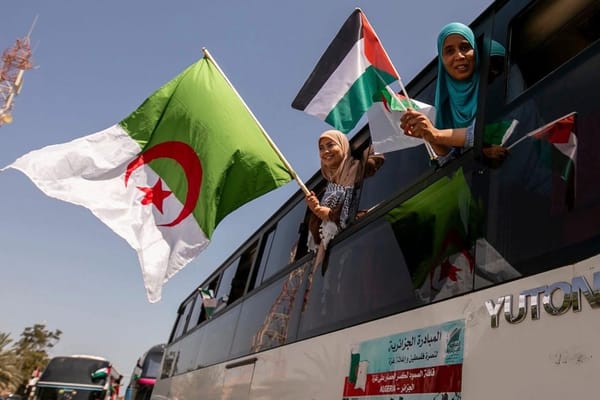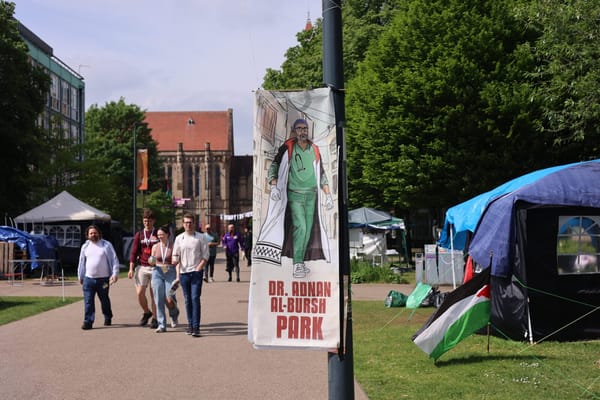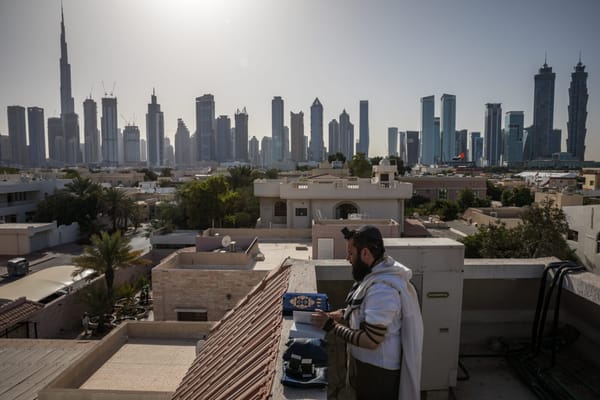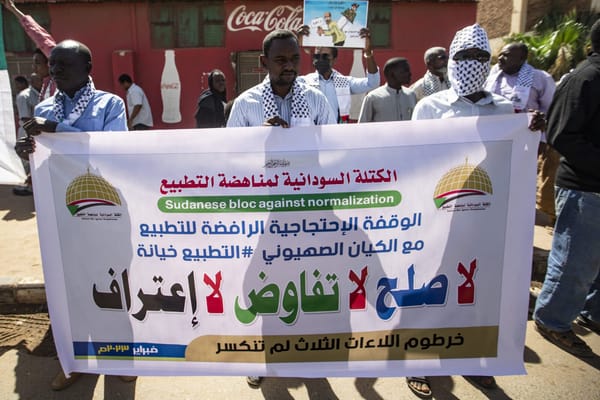In Cruelty and Silence, Kanan Makiya tells the story of the Iraqi occupation of Kuwait and the March 1991 uprising against the Baathist regime through a collection of poignant personal narratives. Among the book’s virtues is that, while revealing the violence of the Iraqi regime, Makiya did not forget to record the abuses perpetrated by its victims, the Kurdish and southern Iraqi rebels. Other welcome elements are his critique of the Shi‘i Islamist option for Iraq, his warning against sectarianism and his call upon the Iraqi opposition to unite rather than to indulge in a competition over who has suffered more. Finally, many readers will appreciate the pages he devotes to the persistent breaches of human rights in other Arab countries, an uncommon exercise in the literature of the Iraqi opposition.
The book, though, has a major problem. Makiya’s reporting serves as a leitmotif for reflection and polemic along two themes: the “cruelty” inherent in Arab culture and the “silence” of Arab intellectuals in the face of the horrors of the Iraqi dictatorship. “Leaders like Saddam Hussein,” he writes, “thrive on the silence of the Arab intelligentsia toward cruelty. They are also created by that silence.” This is not just a figure of speech: In Makiya’s universe, “cultural” factors, transformed into stereotypes, are seen as lying at the root of material realities and the conduct of men and women.
“Arab intellectuals” covers diverse and even contradictory categories of people of different status, outlooks and locations vis-à-vis the existing regimes. Some play leading roles legitimizing regimes. Perhaps the widest category are those who occupy intermediary and ambivalent locations between state and society. Yet the intellectuals who attract Makiya’s wrath are exactly those dissidents and critics who, in their intellectual production and public positions, have sought to maintain a measure of independence vis-à-vis the regimes in place. What Adonis, Mahmoud Darwish, Edward Said, Muhammad ‘Abid al-Jabiri, Sadiq al-‘Azm and ‘Abd al-Rahman Munif have in common is exactly the opposite of what Makiya attributes to them: They are verbosely radical critics of Arab society, dominant culture and politics.
Makiya does not bother to discuss any of their major works, and judges them solely on their positions during the Gulf war, when they opposed the American-led assault while remaining critics of the Iraqi regime. Edward Said, for instance, who has criticized the apparent bias in the fact that many good Arab literary works are left untranslated in the West, is accused of blaming the West for the “mess created by Saddam Hussein.” Makiya summons Arab publishers to testify to the miserable state of Arab letters. One speaks of the “proportionately low number of readers among Arabs by comparison with the West” -- as if someone has pretended otherwise. A Lebanese bookseller in Paris offers the brilliant Freudian observation that the “problem goes back to childhood.” All this in order to refute Said’s presumption of a flourishing Arab cultural scene. Makiya fails to establish any relationship between the fact that first-rate Arabic works of literature are not translated in the West and the miserable overall condition of Arab letters, including censorship and assassination of writers.
Makiya’s logic mirrors that of the Islamists: Where they assert the superiority of Arab-Islamic culture, he sees a unique inferiority. That Makiya has opted to identify with Western culture is his business. He perceives all that is problematic in Western culture as a set of absolute truths, which is symptomatic of the cultural parvenu. Makiya seems able to admire Western accomplishments only by judging Arab and Islamic culture in vulgar stereotypes. [1] Yes, Western culture today (after the horrors of two world wars and the Holocaust) is more tolerant and pluralistic than Arab culture today. That happens to be the reason why so many Arab intellectuals naively appeal to the West to uphold its tradition and universal values in dealing with the Arab world. (Makiya’s analysis suffers from inconsistency as well as superficiality: He considers efforts to defend Islam and Muslims against misrepresentation and demonization to be betrayals of secularism. Yet he would have Arab intellectuals unconditionally support the uprisings in southern Iraq despite the fact that, as he notes, they raised the slogan of Shi‘i rule.)
Many readers would be grateful for just one example in Makiya’s rendering of history where a Western power intervened to defend or to install a democratic regime, an example one could set against well-known instances of encouraging military coups, propping up dictators and defending oligarchs. It is up to Makiya to prove that Western powers -- and multinational corporations, oilmen and arms dealers -- have more interest in democratic institutions, with their committees, transparency rules and fiscal controls, than in the monarchs and autocrats who can deliver million-dollar contracts in minutes. Makiya has no time for such trivialities as economic relations, oil, terms of trade, distribution of wealth and the like. Makiya’s West is a benevolent, altruistic entity which progressively vaporizes into a state of pure culture.
Certainly, many Arab intellectuals served Saddam’s regime for many years. Others, previously critical, supported Saddam during the war. They must answer for their own positions. The irony is that those are not the ones Makiya attacks. Not one word is said about Kuwaiti and other Gulf intellectuals who praised Saddam to the skies when he was waging his and their war against Khomeini’s Iran. Makiya is mute on those Iraqi intellectuals, Arab and Kurd, who actively collaborated with and helped legitimize the Baathist regime. All Iraqis, for Makiya, are victims and, at the same time, accomplices. Yet there is nothing in this book about Makiya’s position as chief administrator of his family’s architectural firm, Makiya Associates, in London until 1983. Of one of the firm’s contracts with the Iraqi government, Makiya says elsewhere, “Somebody had to do it, and it might as well have been done well.” [2] Makiya’s own silence extends to a whole generation of Iraqis, intellectuals and ordinary citizens, who refused to be passive victims or accomplices and chose to resist, laying down their lives for that choice or still paying for it in jail or in exile.
According to what criterion are non-Iraqi Arab intellectuals to be judged? The novelist ‘Abd al-Rahman Munif, author of the Cities of Salt trilogy and a Saudi exile stripped of his nationality, left Iraq in 1979 to protest the regime’s persecution of democrats and Communists, leaving behind a comfortable job as editor of a highly praised review for a new exile in Paris and then Damascus. That occurred around the same time that architect Kanan Makiya started working for the Iraqi regime from London. Who should judge whom?
I do not speak in the name of these critical Arab intellectuals whom Makiya attacks, but he accuses me of meeting them “under the same umbrella in defense of the ‘rights’ of a tyrant that not one of them would ever dream of living under.” I answer Makiya’s accusations partly in self-defense, and also to illustrate his technique of distortion and defamation.
I write as someone who has lived more than three decades as a radical Arab oppositionist, a position to which I still adhere. It so happened that in my itinerary I was much implicated in Iraqi affairs. I was expelled from the Baath Party in 1964 for opposing the persecution of Communists and Kurds by the Baath regime that briefly ruled from February to November 1963. In my capacity as editor of the Beirut-based weekly al-Hurriyya, from 1970 to 1982, I was instrumental in giving a voice to the Iraqi opposition -- Arab and Kurd -- and in revealing as early as 1971-1972 torture under the Baath regime that came to power in 1968. During the civil war in Lebanon, I made many trips to Iraq in my capacity as a leader in the Lebanese National Movement. This did not keep me from independent positions vis-à-vis Iraqi politics. In signed articles, I condemned the Iraq-Iran war from the outset. These visits, which I do not rate as particularly honorable in my political life, nevertheless taught me the absurdity of trying to fight one dictator by collaborating with another. This experience contributed to my decision ten years ago to abandon direct partisan political activity.
For all my politically active life, I have stood by the right of the Kurdish people to self-determination. I was one of two Arabs who attended the Conference of Solidarity with the Kurdish People convened in Paris in 1989 (the other was the late Salim Fakhri of Iraq). Kanan Makiya admits to having discovered Anfal -- the murder and compulsory mass expulsion of tens of thousands of Kurds and the destruction of hundreds of villages -- in September 1991. More than two years before, Zawaya, a review I edited in Paris, published extensively on aspects of the Anfal campaign. [3] I have done this precisely because I identify very much as an Arab national and I believe that Arab unity is the appropriate context for Arabs to achieve liberation, democracy and development. This belief is as strong as my consistent criticism of the illusions and delusions of Arab nationalism in ideology and practice. According to Makiya, though, “The Lebanese leftist intellectual Fawwaz Trabulsi, long after the war and the uprising had ended and the full scope of the debacle became clear, proudly announced that he had stood by the Iraqi regime without, however, renouncing his opposition to the ‘repressive relations’ that it maintained with its people.”
The first problem with Makiya is that he does not read. The article he cites, from Middle East Report, included an editor’s note stating that it was translated and abridged from a March 14, 1991 roundtable in Paris. [4] This means my views were composed not “long after the war and the uprising had ended,” but while the uprisings were still going on. Not that this matters much, but it illustrates the lightness with which Makiya deals with facts, contexts and ideas. I did defend Iraqi rights in the conflict with Kuwait over borders, access to the Gulf, the Rumayla oilfields and war debts. At the same time I called for a peaceful settlement of the conflict.
In rereading this article, I fail to detect “pride.” Rather, a few paragraphs away from the one Makiya cites, I demanded, “that he who drew me into the battle resign, for having led us into a war that could have been avoided and for having led his own people through two devastating wars. The entire Iraqi government, not only the president but the Revolutionary Command Council and the party, should be removed in order to spare Iraq any further bloodshed. We should reject the blackmail that claims that the only alternative to Saddam is anarchy.... The essential thing is that the Iraqi people be free to decide the kind of regime that they want.”
For Makiya, this call to remove the Iraqi regime, publicly expressed when the intifadas of Iraq were still ongoing, constitutes “silence.” Later, I called for internationally supervised free elections in Iraq. [5] Makiya’s book favors removal of Saddam Hussein by Gen. Schwarzkopf’s occupying army (which, in the best of cases, was looking for a Baathist military replacement). The one criticism Makiya reserves for the Western powers is not that they waged war against his country but that they declined to finish it by occupying Baghdad and overthrowing Saddam Hussein. What should this tell us about the war -- its nature, its motives, its conduct and goals?
One last word about solidarity. Being critical of one’s own government and, for that matter, of Arab society and politics in general, does not impose silence on the behavior of the Arab opposition parties. It does not require approval of an Iraqi opposition which, in the majority of its 72 parties, organizations, factions and clans, still favors the embargo imposed on its people. Is the “Arab intellectual” supposed to support the “federation” for the Kurds of Iraq and keep his/her mouth shut on the rights of those of Turkey? Iraqi Kurds have no need for the solidarity of Arab intellectuals if their aim is to secede from Iraq; they would need that solidarity rather to imagine new forms of Arab-Kurdish coexistence based on mutual interests and mutual respect for each other’s rights. Why should one hail the March 1991 intifadas and dismiss, unconvincingly, the armed Iranian intervention? Makiya, appropriately, does criticize Jalal Talabani and Masoud Barzani when they decided to negotiate with Baghdad, thus splitting the Iraqi opposition, dropping the demand for democracy for the whole of Iraq, and allowing the regime the required breathing space to crush the intifada in the south.
In his earlier book, Republic of Fear, Makiya had made the “fear” and complicity of Iraqis the main factor responsible for the persistence of Saddam Hussein’s regime. He brushed off such factors as the social base which benefited from tremendous state expenditures during the oil boom years; the sizable Arab and international backing the regime enjoyed; and the overwhelming military power that the regime had at its disposal against its own people. The intifadas of March 1991 proved the shameful impudence of Makiya’s concepts of “fear” and complicity. By a simple transfer of guilt, Makiya wants now to convince us that the dictator is the product of Arab culture and the “silence” of Arab intellectuals. The only actors absolved of responsibility are the Western powers.
Of the many cultural traditions worth getting rid of in our part of the world, Makiya has followed the most abject: the tribal rule of spite, according to which “the enemy of my enemy is my friend.” Makiya has demonstrated how an inferiority complex vis-a-vis the said “friend” further impoverishes knowledge of the Arab world of Iraq in particular, by means of “fear,” “cruelty” and “silence” -- so formidable and horrible in actual reality, yet so shallow in his intellectualizing.
Endnotes
[1] One proof for Makiya is that invading Iraqi soldiers ate, slept and defecated in the same Kuwaiti rooms they occupied. Israeli soldiers behaved similarly in Lebanese monasteries, churches and public spaces, but no Arab critic has suggested this is an Israeli “cultural habit,” much less an explanation of the Arab-Israeli conflict. Arab machismo is also unique. Makiya seems unable to criticize the humiliating condition of Arab women without inventing a “professional” rapist working for Iraqi intelligence. In addition, all Iraqi males are complicit in this by virtue of an Arab code of honor. At another point Makiya attributes to a “majority of Arabs” a belief in imaginary birds which can defeat armies, because such birds are mentioned in the Qur’an. This is a bit like saying that “many Westerners” believe some people can walk on water. [2] New Yorker, January 6, 1992. [3] The first issue of Zawaya (July-August 1989) revealed the construction of the buffer zone on the Iran-Iraq border, the expulsion of 200,000 Kurds, the destruction of tens of villages and the resistance of Kurdish civilians to Baathist tanks in Qal‘at Dizeh and elsewhere. The same issue carried a testimony by an Arab from southern Iraq whose peasant family had been forcibly moved to the north to replace Kurds displaced to the south. The September 1989 issue published interviews by two Iraqi journalists among 350 Iraqi Kurdish refugees who gave details of the Halabja massacre and told about the children who perished on the way to exile. They also bitterly recalled their ill treatment at the hands of the Turkish authorities who attempted to free them back to Iraq. [4] “Harvest of War,” Middle East Report 171 (July-August 1991), p. 32. Originally published in the Revue d’Etudes Palestiniennes (Spring 1991). [5] Le Monde Diplomatique (September 1992).
Written by
This article was published in Issue 187-188.






